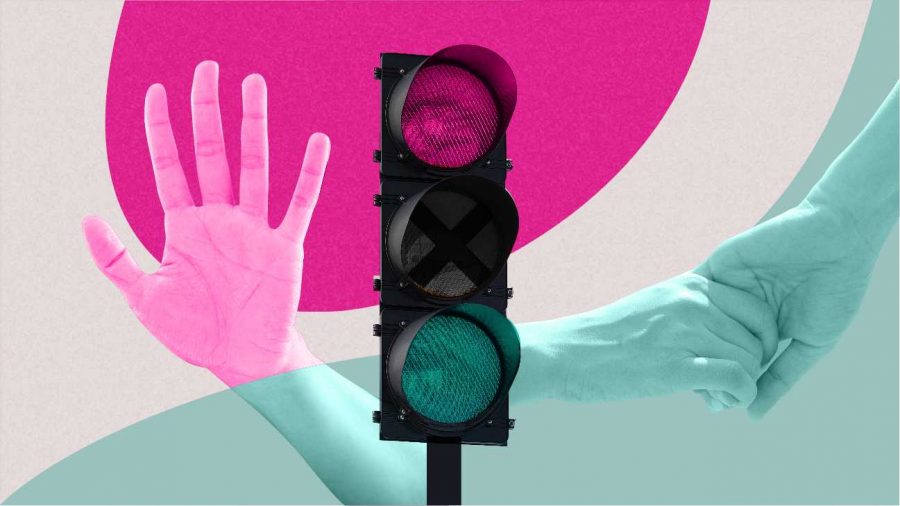Poma: What is Consent? Utah Needs a Clearer Definition of it.
March 16, 2020
Rep. Angela Romero’s H.B. 213 Consent Language Amendments passed the Utah House and the Senate during this year’s general session and made important clarifications about consent. Unfortunately, due to major changes made to the bill, certain aspects of affirmative consent remain unclear. These revisions removed the change to require expressed consent and the explicit protections for victims who are unable to express consent due to intoxicants. While the bill is still a step in the right direction, Utah continues to lack sufficient protection for victims in assault scenarios. When it comes to consent, the law needs to be as clear as possible and legal protections should extend to everyone who needs them.
Consent in Utah
Originally, the bill stated that, among other limitations, a perpetrator commits sexual abuse if “the victim does not express consent through words or conduct” or they knowingly engage in sexual activity with someone who is “unconscious, unaware that the act is occurring, is unable to express consent due to alcohol, drugs or other intoxicants or is physically unable to resist.” The original and substitute bills also added that consent to any sexual act or prior consensual activity does not constitute consent to any other sexual act, and that consent may be withdrawn any time prior to or during sexual activity. Romero’s initial language correctly clarified what it means to give consent.
The substituted version — which ultimately passed through the legislature — removed many of the key corrections in H.B. 213, leaving Utah without laws that fully encompass proper consent. Some representatives believed that the initial language was too similar to H.B. 74 from 2015’s session. That particular bill stated that those who are incapable of understanding or resisting the act can not consent. But H.B. 213 outlined a broader, clearer understanding of consent, including protections for victims who were intoxicated by drugs or alcohol.
Consent and Samuel Butler
Samuel Butler has been accused of sexual assault eight times. Yet, he hasn’t been convicted in court, which may be in part due to an unclear definition of consent. One victim recounted “I didn’t know what to do or how to react. At this point, I had told him no and he wasn’t listening to me. So I wasn’t sure what to do and I kind of froze up.” Butler told a different story, saying he does not believe that he pushed things too far or he did anything without her consent. Romero tweeted about this case in particular:
H.B. 213’s first draft would have provided better protection for victims in these cases and allowed their attackers to be properly prosecuted. Luckily, Romero is going to discuss with a group of prosecutors, defense attorneys, victim advocates, law enforcement and medical experts in the coming months on how to implement some of H.B. 213’s original reforms next year. I hope this continued effort will alter the state’s discussions about consent. As a campus, we also have a responsibility to contribute more to the conversation.
Violations of consent on campus is a serious issue that affects every student. Assaults at the U almost doubled in 2018 – and those are just the ones reported. Dating apps used by college students, in general, fail to perform background checks on users, making other users easy targets for assaults. The U’s open campus, large student body and popular sporting events, may also contribute to student vulnerability.
Just this year, U football player Terrell Perriman was charged for allegedly kidnapping and raping a 17-year-old girl — later he was also charged with the rape of two other women. Yes, prevention programs such as SafeU and safety escorts exist, and the student body has done a great job pushing for safety protections on campus. But we should also support efforts, like with Romero’s H.B. 213, to protect victims after the fact. The changes would impact the entire state, but they are especially relevant to university students.
Almost 17% of women in Utah experience some form of sexual assault. And perhaps most frighteningly, countless incidents go unreported. H.B. 213 is a step towards a better definition of consent and a more active approach in addressing sexual assault in Utah but there is still work to be done. Hopefully, as more and more victims and advocates voice their opinions, the Legislature will be spurred towards greater change.












